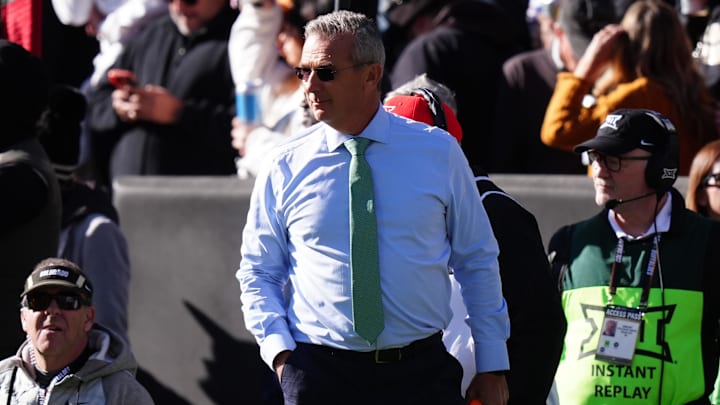Legendary Coach Says ‘No Chance’ Major Schools Want NIL, Revenue Equality

Revenue sharing is coming to college sports later this year. For the first time, schools can either opt-in or opt-out to sharing revenue with student athletes.
For those schools that decide to opt in, there will be a cap on the amount of money shared, a pseudo salary cap.
Those schools that opt in can share revenue of at least $20 million in the 2025-26 academic year, and that number will go up incrementally each season. That is on top of any name, image and likeness (NIL) money that student-athletes could make through outside deals.
This is all due to the House vs. NCAA settlement, the landmark combination of three different cases that have changed how student-athletes can enjoy the revenue their schools have been making for decades.
It’s also another way for the haves in college sports to exert power over the have-nots, says former college football coach Urban Meyer. And that’s not changing.
By opting in or opting out, athletic programs are telling their student-athletes what they can do. But in truth, it's only the power conference schools that have the resources to share up to $20 million per year. Those schools are in the ACC, the Big Ten, the Big 12 and the SEC. The vast majority of the rest of NCAA membership will likely opt out.
Meyer realizes there may be calls to try and equalize the playing field, much in the way the NFL does with its salary cap. Given the current power structure and the money at stake, Meyer recently told Colin Cowherd on his radio show, “The Herd,” that the major schools won’t allow that sort of equity to happen, even if he agrees there should be guardrails.
“I don’t think there’s any chance, though, because that would mean the upper-echelon schools would have to give up power,” Meyer said. “If you’re Ohio State, Alabama, Georgia, Oregon, the teams with this ridiculous amount of money, you are the power player right now in college sports.
“Imagine sitting in a room and saying, ‘OK, we’re going to back you guys down and make this more equal like the NFL.' The NFL, you’ve got 32 teams and they are all working under the same guidelines. College football, you’ve got teams that are $20 million and you have teams that can't do that. Why would those teams lower and raise the others? Right now, I don’t see that happening.”
Meyer is now an analyst for Fox’s Big Noon Kickoff show after a long career as a college football coach that saw him lead four football programs and win three national championships. He won Florida two national titles in 2006 and 2008. Then, after a short break, he returned to his native Ohio and led Ohio State to the 2014 national championship, which was the fisrt year of the College Football Playoff.
He went 187-32 as a college coach and his time at both Florida and Ohio State was, at times controversial, as many of them involved misconduct by his players or coaching staff.
He spent less than one season leading the Jacksonville Jaguars, going 2-11 and was fired before the 2021 season ended. His own conduct came under scrutiny both on and off the field.
